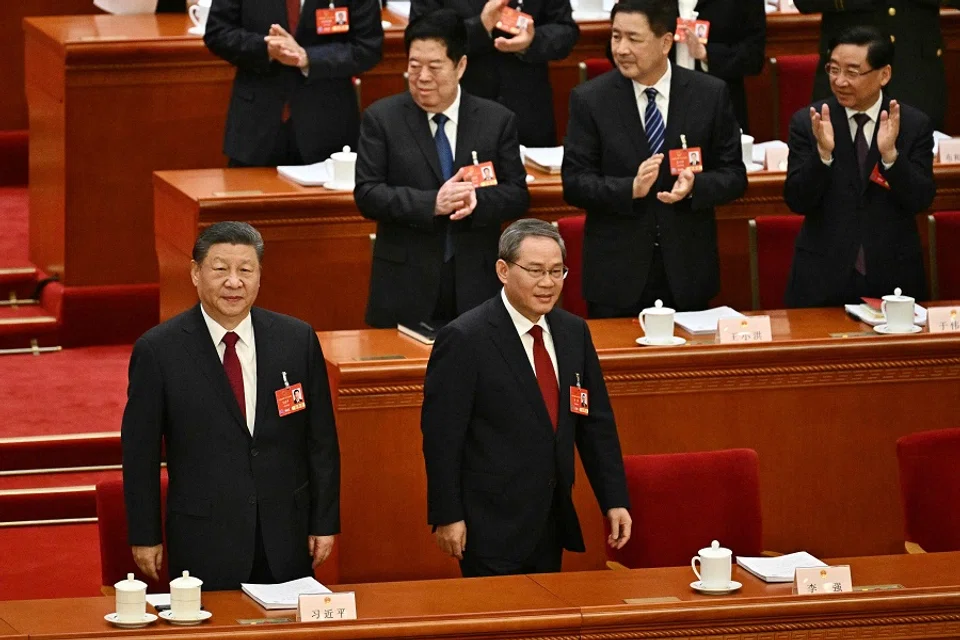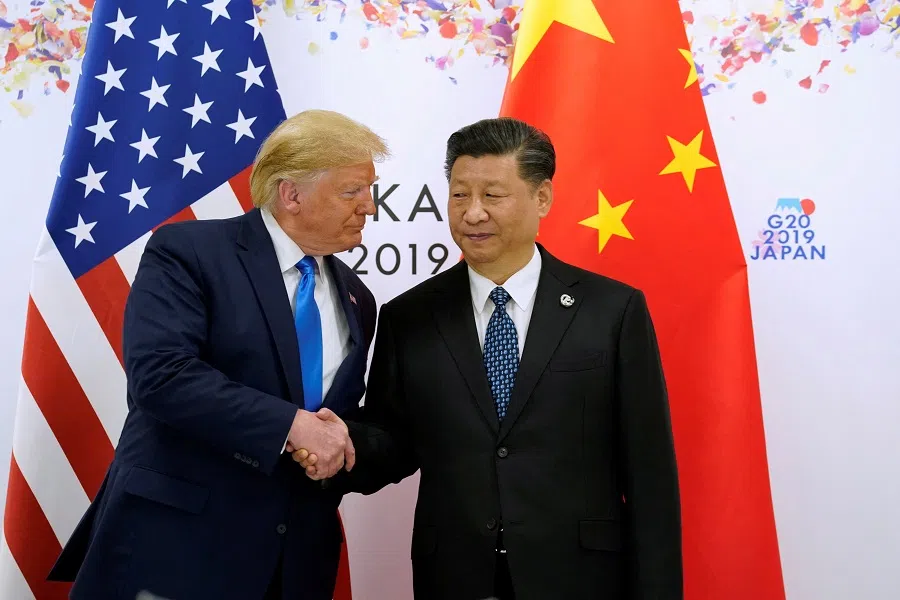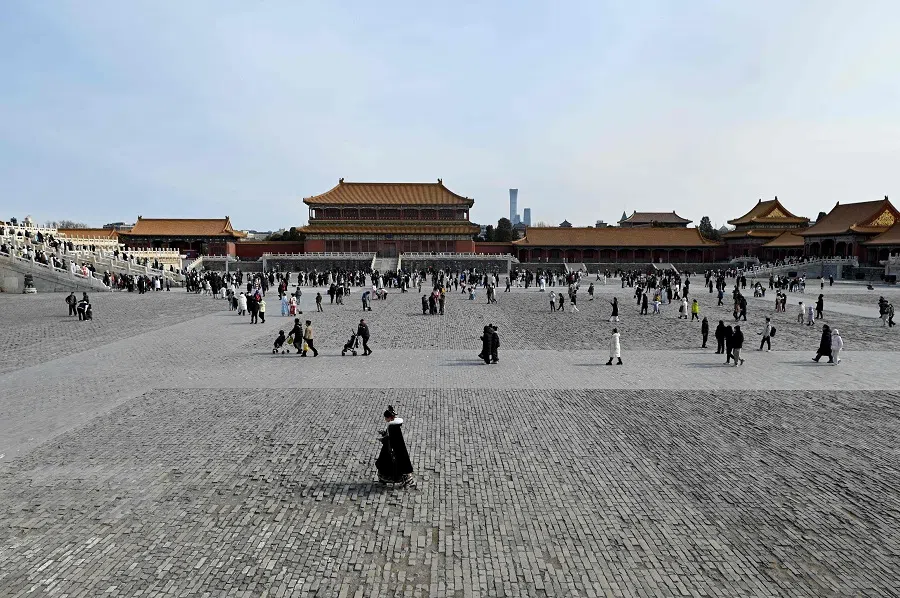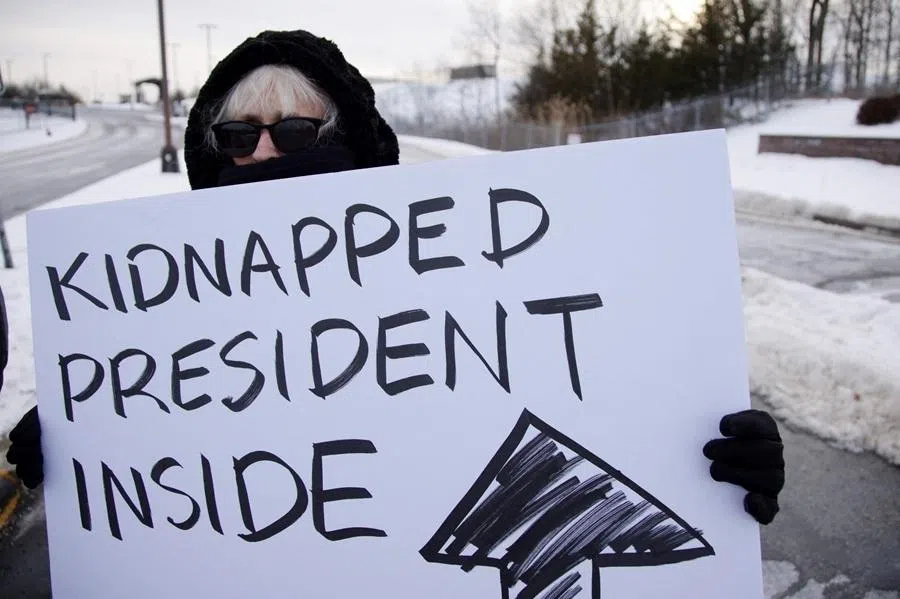Optimism prevails at this year’s Two Sessions
At this year’s Two Sessions, the mood was noticeably more relaxed and optimistic compared to recent years. What has changed since previous years and what can we expect from China in upcoming years? Lianhe Zaobao correspondent Yu Zeyuan tells us more.

On the morning of 5 March, a smiling Chinese President Xi Jinping led a delegation of leaders to the rostrum of the National People’s Congress (NPC) as a cheerful welcoming tune played. This scene has been a familiar sight at the opening ceremonies of China’s “Two Sessions” — the NPC and the Chinese People’s Political Consultative Conference (CPPCC) — over the past decade. However, at this year’s sessions, China’s leaders might truly be feeling at ease.
After the outbreak of the China-US trade war in 2018, China’s external environment deteriorated and internal pressures increased, leading to a more serious atmosphere at the Two Sessions. Between 2020 and 2022, under the shadow of the Covid-19 pandemic, the agenda of the Two Sessions was significantly reduced. Media interviews were restricted, and delegates exercised greater caution in their words and actions, resulting in a more tense atmosphere.
After 2023, the economic downturn persisted, occasionally intensifying, despite the lifting of Covid restrictions. Meanwhile, the Biden administration maintained pressure on China in areas like technology, trade and ideology. Consequently, the atmosphere at the Two Sessions in both 2023 and 2024 was anything but relaxed.
Easing of external pressures
After Donald Trump became US president, many people believed that he would impose harsher measures on China during his second term. The outside world thus became pessimistic about China’s domestic and international environment this year.
Unexpectedly, just over a month into office, Trump did not primarily focus on suppressing China, but instead targeted Ukraine and European allies. Although the Trump administration did impose a 20% tariff on Chinese goods, this increase was far less than the 60% Trump had previously threatened. At the same time, Trump also slapped a 25% tariff on goods imported from Canada and Mexico.
As of now, Trump’s relatively moderate stance towards China, coupled with the conflict between the US and Europe over the Ukraine issue, has eased the strategic pressure China faced in recent years.
Furthermore, since taking office, Trump has twice publicly mentioned his intention to invite Xi to visit the US and has described US-China relations as being “great”. On the issue of Taiwan, which is of paramount importance to mainland China, Trump’s statements have also been relatively in line with China’s expectations.
On 26 February, when asked if the US would stop the People’s Liberation Army from attacking Taiwan, the typically outspoken Trump again refused to comment. Previously, Trump had repeatedly refused to answer whether the US would commit to defending Taiwan, instead stating that the Taiwan issue needs to be resolved through negotiations with China.

As of now, Trump’s relatively moderate stance towards China, coupled with the conflict between the US and Europe over the Ukraine issue, has eased the strategic pressure China faced in recent years. Although it is difficult to predict Trump’s future China policy, China’s comprehensive national strength and resilience have significantly increased after several years of engaging with the US, compared to the initial stages of the China-US trade war in 2018. This will give Trump — a leader known for his focus on calculating interests — more to think about when pressuring China.
China’s tech boom another encouraging factor
As external pressure eased, the recent boom in China’s technological products also helped restore confidence in the domestic market.
Since the end of last year, China has showcased a series of high-tech military equipment, including two sixth-generation fighter jets, the KJ-3000 early warning aircraft, and the world’s first amphibious assault ship equipped with an electromagnetic catapult system, the Type 076.
The artificial intelligence product DeepSeek, created by private entrepreneur Liang Wenfeng, has also created a global impact as a phenomenal tech product. DeepSeek and Unitree Robotics, representing the “Hangzhou Six Little Dragons”, have become models for provinces and cities across China. Hangzhou’s success has prompted local governments to enhance business environments with a policy of non-interference when unnecessary, and ensure prompt responsiveness to requests to support the growth of private enterprises.
On 17 February, Xi held a symposium for private enterprises for the first time in seven years, and commented that it is an opportune time for private businesses and entrepreneurs to showcase their capabilities. His comments provided another shot in the arm by boosting confidence in the private economy and market.
Li’s analyses do not differ significantly from the descriptions of difficulties in government work reports in past years.
External challenges remain, but the overall outlook is optimistic
Addressing the domestic and international pressures currently faced by China, Chinese Premier Li Qiang said in a government work report on 5 March that the external environment is rapidly becoming more complex and adverse due to global changes unprecedented in a century, which may have a greater impact on China’s trade and technology sectors. The recovery of the domestic economy also remains hampered by issues such as insufficient effective demand and weak consumption.

Li’s analyses do not differ significantly from the descriptions of difficulties in government work reports in past years. He also emphasised the advantages China possessed in overcoming these difficulties, including an extremely large market, a complete industrial system as well as abundant labour and talent resources, among others advantages. After Li declared that China’s economy would surely navigate through the storm and sail steadily in the long run, the thousands of members present at the Two Sessions responded with enthusiastic applause.
... both the government and enterprises are now focused on one word: “action”. — Zhang Xinghai, a CPPCC member
Some private entrepreneurs who attended the Two Sessions seemed more relaxed compared to previous years, and expressed optimism about China’s economy this year. Lei Jun, founder of Xiaomi Group and an NPC representative, was the first to be interviewed by various media outlets in the officially organised “delegates’ passage” on 5 March. Lei stressed Xiaomi Group’s commitment to contribute to the progress of China’s modernisation.
In his response to Lianhe Zaobao on 5 March, Zhang Xinghai, a member of the CPPCC and chairman of Seres Group expressed strong confidence in the policies released in the government work report. He added that both the government and enterprises are now focused on one word: “action”.
This article was first published in Lianhe Zaobao as “今年的两会较轻松”.





